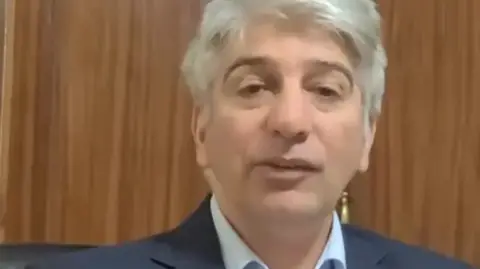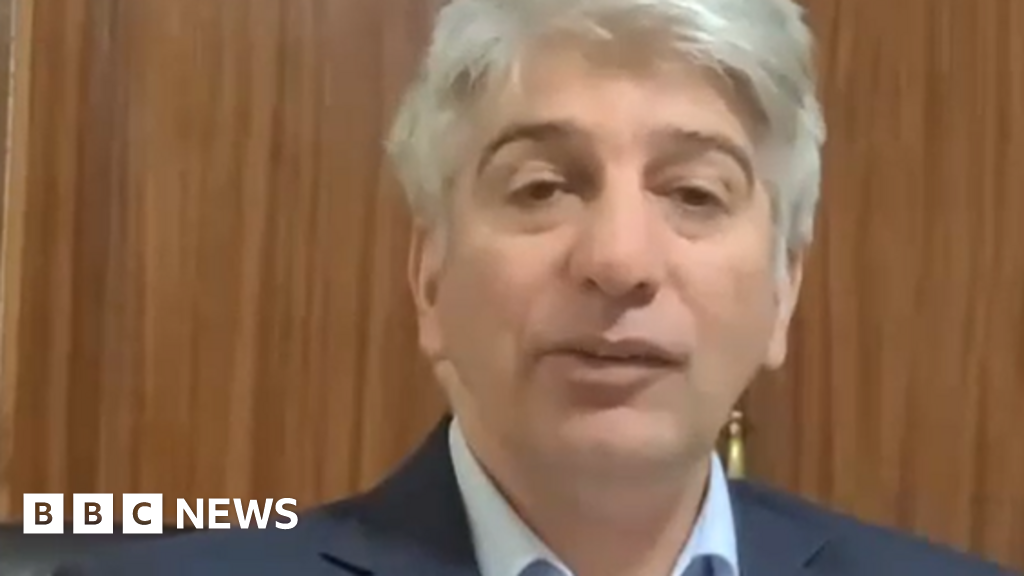 IMAGE SUPPLIED
IMAGE SUPPLIEDA British national has told the BBC that he and several Turkish citizens were abducted in the Kenyan capital Nairobi by masked men on Friday, with four of the Turkish citizens still missing.
Necdet Seyitoğlu, who lived in the UK for 18 years before moving to Kenya two years ago, said he was released after eight hours when he showed his alleged abductors a copy of his British passport.
In a statement, the UK Foreign Office said they were “providing consular support to a British man and his family following an incident in Kenya”.
Kenyan police told the BBC they were investigating a “kidnapping incident” after a motorcycle driver witnessed the abduction.
According to the report, two vehicles intercepted and blocked from the front and behind a silver saloon car with two occupants.
“About eight persons armed with weapons emerged from the two vehicles, pulled out the two occupants” and drove off with them, said Kenyan police spokeswoman Resila Onyango.
“Later, one Yusuf Kar, a British national of Turkish origin” reported to a nearby police station and identified the kidnapped men as Hüseyin Yeşilsu and Necdet Seyitoğlu.
Turkish authorities have not yet commented on the incident.
Mr Seyitoğlu, an education consultant, gave additional details of what he said happened during his kidnapping ordeal, some of which differ from the police account.
He described a white SUV intercepting his car as he was leaving home for work with a friend at 07:30 local time (04:30 GMT).
The pair were blindfolded and handcuffed by four armed men before being driven off to an unknown location, he said.
Repeated requests about what was happening went unanswered, he said.
“We asked them, can you show your identification? Where we are going? But we didn’t get any kind of explanation,” the 49-year-old said.
“It was the worst experience of my life,” Mr Seyitoğlu added.
He said he was eventually able to convince his alleged abductors that he was a British citizen by showing them a copy of his passport on this phone.
After taking a photo, the men received a call that sounded like it was an instruction to release him, he said.
The masked men, who Mr Seyitoğlu said spoke Swahili, then dropped him off at a place he did not recognise and gave him 1,000 shillings ($7.50; £6) for transport back home, but refused to return his phone and laptop.
During this time, Mr Seyitoğlu said his wife reported him missing, and informed the British High Commission.
Mr Seyitoğlu said six other people he knew – all Turkish citizens – were also abducted in the same manner from different locations in Nairobi.
A local law firm, Mukele & Kakai, said in a statement that it was acting on behalf of four men who were registered refugees and warned airlines against allowing them to be brought on board.
“Our clients were abducted in Kenya with the aim of being deported back to Turkey where they are victims of political victimisation,” the lawyers’ letter, seen by the BBC, said.
This was echoed by the campaign group Amnesty International, whose Kenya spokesman said he was “deeply concerned by reports that seven asylum seekers from Türkiye have been abducted on Kenyan soil”.
The UN’s refugee agency, UNHCR, told the BBC it was “aware of reports and will provide more information once we have it”.
Additional reporting by Natasha Booty
More stories from Kenya:
 Getty Images/BBC
Getty Images/BBC

